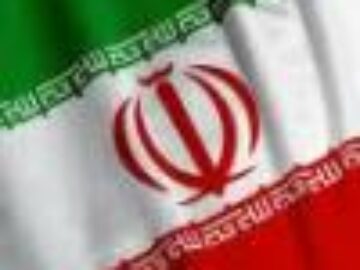UN sanctions on Iran: A gift to the regime

Renewed sanctions give Mahmoud Ahmadinejad the opportunity of defying the world, and winning
In pushing ahead with a new round of UN security council sanctions, the US has rendered redundant an Iranian offer to send 1.2 tonnes of low-enriched uranium (LEU) to Turkey for reprocessing as reactor fuel. Western diplomats claimed they had not rejected the idea, but it was clear to all what the effect of the UN resolution would now be. This is a mistake President Barack Obama may yet come to regret. True, this time, the US has Russia and China at its side, but neither country is risking much by going with the flow while taking the credit for diminishing its strength. The same is not true for Mr Obama, who has invested so much of his time and energy attempting to re-establish the primacy of US diplomacy over force. He will be seen by many to be walking away from the table at the very moment something appears to be on it.
This is not to belittle the difficulties the deal brokered by Turkey and Brazil posed. They were real enough: the quantity of LEU Iran offered to export abroad only represents half of its total stockpile; Iran would continue enrichment up to 20% of fissile purity; and no date had been set for the removal van. But nor should one lose sight of the concessions Iran made in offering to trade: that the fuel would be delivered in one shipment; that reprocessing could take place outside Iran’s borders; and that the fuel rods would have to be delivered in a set timeframe. These were Iran’s objections to the deal when it was proposed in October last year, and ones which they dropped this time round. The fuel swap would not have ended doubts about Iran’s nuclear programme, but it would have established a precedent. Instead, the International Atomic Energy Agency is no further forward securing Iran’s growing stockpile of enriched uranium in conditions where it could be controlled. Indeed, the international effort to ensure that Iran’s nuclear programme remains civilian has just taken a step backwards.
The sanctions have been devised to increase the cost paid by President Mahmoud Ahmadinejad and the elite Revolutionary Guards in defying world opinion. But the architects of the financial curbs failed to address two inconvenient truths: the first is that the opposition movement of Mir Hossein Mousavi also regards uranium enrichment as a national right, and opposes another round of sanctions; and the second is that Mr Ahmadinejad himself will relish them. Renewed sanctions give him the opportunity of defying the world, and winning. Everyone is taking stock a year after the disputed election which convulsed the country. It gave rise to the biggest ever challenge to its authority the Islamic Republic has seen. But months of repression, torture, show trials, rapes in prison and hangings have had their intended effect: the Green movement has been decapitated and eviscerated. Its nominal leaders have called for a peaceful rally to mark the anniversary in the full knowledge of what even peaceful protest risks. Their sacrifice has not been in vain. As the Iranian saying goes, a fire is burning within the ashtray, but predicting where and when it will burst into flame again is a mug’s game.
The two reformists Mr Mousavi and Mehdi Karroubi have sought to portray themselves as the true heirs of the Islamic revolution’s spiritual leader, the late Ayatollah Khomeini, but this tactic has since worn thin and Khomeini’s successor Ayatollah Ali Khamenei has stepped up his drive to paint Mousavi and Karroubi as western-run heretics. Not for nothing has Mr Mousavi called this the year of “patience and endurance”. In retrospect, the western media overestimated the importance Twitter and Facebook played in fanning dissent. It depicted the political struggle solely as one between a politically active and educated tranche of the electorate and the regime, when it was also between a liberal and a conservative part of Iran, at least six million strong. If the fire of dissent is glowing, it does so now under a lot of cigarette ash.
